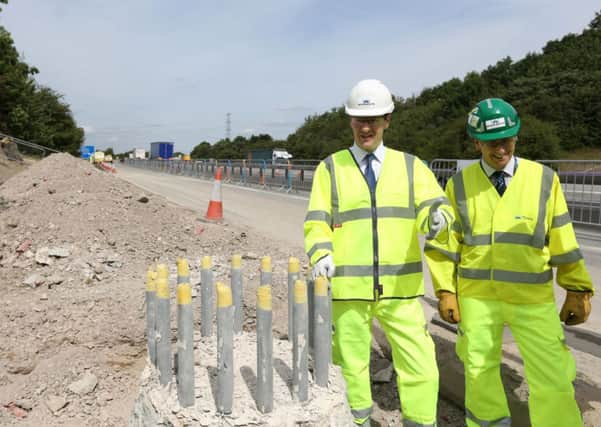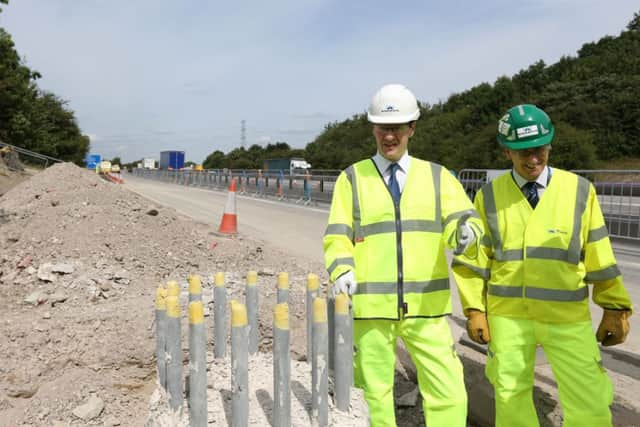Boris-style mayors ‘could help Yorkshire grow’ insists Osborne


But Mr Osborne insisted he would not force the region to embrace Boris Johnson style administrations as a condition of major investment to help the North compete on the global economic stage.
The Chancellor set out his vision last month to turn the North into an economic “powerhouse” by dramatically improving connections between its major cities.
Advertisement
Hide AdAdvertisement
Hide AdAnd yesterday he went further, promising to deliver a clear plan for how it will be achieved as the centrepiece of his Autumn Statement later this year.


The Chancellor said he would draw on a string of reports - including one published yesterday by cities including Leeds and Sheffield calling for a £15 billion investment in transport over 15 years - to shape his plan.
In a speech to council leaders he said: “I’m ready to commit new money, new infrastructure, new transport and new science. And real new civic power too.
“Today I’m setting out the pathway to this Northern Powerhouse, so we deliver a real improvement in the long term economic performance of the north of England.
Advertisement
Hide AdAdvertisement
Hide Ad“This will be a centrepiece of my Autumn Statement - and part of our long term economic plan for the country.”
Mr Osborne said his plan will include the offer of “a major transfer of powers and budgets to cities in the north” who choose to have elected mayors.
Two years ago Leeds, Bradford, Sheffield and Wakefield were among cities where voters rejected plans for elected mayors.
The idea of a single mayor covering more than one city has also previously been floated but come up against strong opposition from groups concerned about loss of local identity.
Advertisement
Hide AdAdvertisement
Hide AdAnticipating the argument, Mr Osborne said in his speech: “I know it’s controversial with some, and the local politics isn’t always easy – but almost every major global city has a single mayor, and it’s the view of many different people who’ve looked at our cities here and say it’s time we did the same.”
Speaking to The Yorkshire Post during a visit to Wetherby firm Arville Textiles yesterday, Mr Osborne said: “I think great global cities almost always have elected mayors. I think that provides a focal point for accountability.
“So I am going to make an offer, I’m not imposing anything, I’m saying it’s their for people if they want to take it either in West Yorkshire or Manchester or wherever and say if you want much more local power on housing, over transport, over skills, like you see in London, then go for an elected mayor.”
The Chancellor also stressed his proposals would go beyond the major cities to make towns such as Wetherby better connected to the wider economy.
Advertisement
Hide AdAdvertisement
Hide AdThe Treasury published figures yesterday suggesting that if the North could grow at same rate as the UK as a whole between now and 2030 it would add around £56 billion to the North economy or £1,600 per person.
The ‘One North’ transport plan set out by northern cities yesterday and welcomed by Mr Osborne proposes a string of significant investments including the creation of a 125 mph transpennine rail link as well as spending to improve the existing network and trains.
It was widely welcomed by business groups although there were warnings that strengthening the region’s economy would need more than transport improvements.